FICTION:
HHhH: “Himmlers Hirn heisst Heydrich”, or “Himmler’s brain is called Heydrich”. The most dangerous man in Hitler’s cabinet, Reinhard Heydrich was known as the “Butcher of Prague.” He was feared by all and loathed by most. With his cold Aryan features and implacable cruelty, Heydrich seemed indestructible—until two men, a Slovak and a Czech recruited by the British secret service, killed him in broad daylight on a bustling street in Prague, and thus changed the course of History.
Who were these men, arguably two of the most discreet heroes of the twentieth century? In Laurent Binet’s captivating debut novel, we follow Jozef Gabćik and Jan Kubiš from their dramatic escape of Nazi-occupied Czechoslovakia to England; from their recruitment to their harrowing parachute drop into a war zone, from their stealth attack on Heydrich’s car to their own brutal death in the basement of a Prague church.
A seemingly effortlessly blend of historical truth, personal memory, and Laurent Binet’s remarkable imagination, HHhH is a work at once thrilling and intellectually engrossing, a fast-paced novel of the Second World War that is also a profound meditation on the nature of writing and the debt we owe to history.
A ferocious firefight with Iraqi insurgents at "the battle of
Al-Ansakar Canal"—three minutes and forty-three seconds of intense
warfare caught on tape by an embedded Fox News crew—has transformed the
eight surviving men of Bravo Squad into America's most sought-after
heroes. For the past two weeks, the Bush administration has sent them on
a media-intensive nationwide Victory Tour to reinvigorate
public support for the war. Now, on this chilly and rainy Thanksgiving,
the Bravos are guests of America's Team, the Dallas Cowboys, slated to
be part of the halftime show alongside the superstar pop group Destiny's
Child.
Among the Bravos is the Silver Star–winning hero of Al-Ansakar Canal, Specialist William Lynn, a nineteen-year-old Texas native. Amid clamoring patriots sporting flag pins on their lapels and Support Our Troops bumper stickers on their cars, the Bravos are thrust into the company of the Cowboys' hard-nosed businessman/owner and his coterie of wealthy colleagues; a luscious born-again Cowboys cheerleader; a veteran Hollywood producer; and supersized pro players eager for a vicarious taste of war.
Among these faces Billy sees those of his family—his worried sisters and broken father—and Shroom, the philosophical sergeant who opened Billy's mind and died in his arms at Al-Ansakar.
Over the course of this day, Billy will begin to understand difficult truths about himself, his country, his struggling family, and his brothers-in-arms—soldiers both dead and alive. In the final few hours before returning to Iraq, Billy will drink and brawl, yearn for home and mourn those missing, face a heart-wrenching decision, and discover pure love and a bitter wisdom far beyond his years.
Poignant, riotously funny, and exquisitely heartbreaking, Billy Lynn's Long Halftime Walk is a devastating portrait of our time, a searing and powerful novel that cements Ben Fountain's reputation as one of the finest writers of his generation.
Pak Jun Do is the haunted son of a lost mother—a singer “stolen” to Pyongyang—and an influential father who runs a work camp for orphans. Superiors in the state soon recognize the boy’s loyalty and keen instincts. Considering himself “a humble citizen of the greatest nation in the world,” Jun Do rises in the ranks. He becomes a professional kidnapper who must navigate the shifting rules, arbitrary violence, and baffling demands of his Korean overlords in order to stay alive. Driven to the absolute limit of what any human being could endure, he boldly takes on the treacherous role of rival to Kim Jong Il in an attempt to save the woman he loves, Sun Moon, a legendary actress “so pure, she didn’t know what starving people looked like.”
In this epic, critically acclaimed tour de force, Adam Johnson provides a riveting portrait of a world rife with hunger, corruption, and casual cruelty but also camaraderie, stolen moments of beauty, and love.
Pulitzer Prize finalist Lydia Millet is "one of the most acclaimed novelists of her generation" (Scott Timberg, Los Angeles Times). Salon praised her for writing that is "always flawlessly beautiful, reaching for an experience that precedes language itself." The Village Voice added, "If Kurt Vonnegut were still alive, he would be extremely jealous."
This stunning new novel presents Susan Lindley, a woman adrift after her husband's death and the dissolution of her family. Embarking on a new phase in her life after inheriting her uncle's sprawling mansion and its vast collection of taxidermy, Susan decides to restore the neglected, moth-eaten animal mounts, tending to "the fur and feathers, the beaks, the bones and shimmering tails." Meanwhile an equally derelict human menagerie--including an unfaithful husband and a chorus of eccentric old women--joins her in residence.
In a setting both wondrous and absurd, Susan defends her legacy from freeloading relatives and explores the mansion's unknown spaces. Funny and heartbreaking, Magnificence explores evolution and extinction, children and parenthood, loss and revelation. The result is the rapturous final act to the critically acclaimed cycle of novels that began with How the Dead Dream.
This is the story of a city.
The northwest corner of a city. Here you’ll find guests and hosts, those with power and those without it, people who live somewhere special and others who live nowhere at all. And many people in between.
Every city is like this. Cheek-by-jowl living. Separate worlds.
And then there are the visitations: the rare times a stranger crosses a threshold without permission or warning, causing a disruption in the whole system. Like the April afternoon a woman came to Leah Hanwell’s door, seeking help, disturbing the peace, forcing Leah out of her isolation…
Zadie Smith’s brilliant tragi-comic new novel follows four Londoners - Leah, Natalie, Felix and Nathan – as they try to make adult lives outside of Caldwell, the council estate of their childhood. From private houses to public parks, at work and at play, their London is a complicated place, as beautiful as it is brutal, where the thoroughfares hide the back alleys and taking the high road can sometimes lead you to a dead end.
Depicting the modern urban zone – familiar to town-dwellers everywhere – Zadie Smith’s NW is a quietly devastating novel of encounters, mercurial and vital, like the city itself.
NONFICTION:
In this brilliantly written, fast-paced book, based on three years of uncompromising reporting, a bewildering age of global change and inequality is made human.
Annawadi is a makeshift settlement in the shadow of luxury hotels near the Mumbai airport, and as India starts to prosper, Annawadians are electric with hope. Abdul, a reflective and enterprising Muslim teenager, sees “a fortune beyond counting” in the recyclable garbage that richer people throw away. Asha, a woman of formidable wit and deep scars from a childhood in rural poverty, has identified an alternate route to the middle class: political corruption. With a little luck, her sensitive, beautiful daughter—Annawadi’s “most-everything girl”—will soon become its first female college graduate. And even the poorest Annawadians, like Kalu, a fifteen-year-old scrap-metal thief, believe themselves inching closer to the good lives and good times they call “the full enjoy.”
But then Abdul the garbage sorter is falsely accused in a shocking tragedy; terror and a global recession rock the city; and suppressed tensions over religion, caste, sex, power and economic envy turn brutal. As the tenderest individual hopes intersect with the greatest global truths, the true contours of a competitive age are revealed. And so, too, are the imaginations and courage of the people of Annawadi.
With intelligence, humor, and deep insight into what connects human beings to one another in an era of tumultuous change, Behind the Beautiful Forevers carries the reader headlong into one of the twenty-first century’s hidden worlds, and into the lives of people impossible to forget.
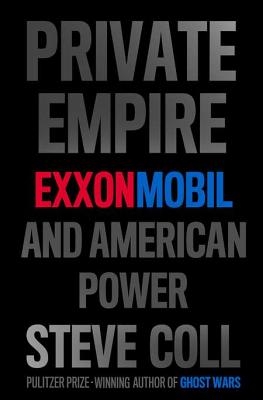 In Private Empire Steve Coll investigates the largest and
most powerful private corporation in the United States, revealing the
true extent of its power. ExxonMobil’s annual revenues are larger than
the economic activity in the great majority of countries. In many of the
countries where it conducts business, ExxonMobil’s sway over politics
and security is greater than that of the United States embassy. In
Washington, ExxonMobil spends more money lobbying Congress and the White
House than almost any other corporation. Yet despite its outsized
influence, it is a black box.
In Private Empire Steve Coll investigates the largest and
most powerful private corporation in the United States, revealing the
true extent of its power. ExxonMobil’s annual revenues are larger than
the economic activity in the great majority of countries. In many of the
countries where it conducts business, ExxonMobil’s sway over politics
and security is greater than that of the United States embassy. In
Washington, ExxonMobil spends more money lobbying Congress and the White
House than almost any other corporation. Yet despite its outsized
influence, it is a black box.
Private Empire pulls back the curtain, tracking the corporation’s recent history and its central role on the world stage, beginning with the Exxon Valdez accident in 1989 and leading to the Deepwater Horizon oil spill in the Gulf of Mexico in 2010. The action spans the globe, moving from Moscow, to impoverished African capitals, Indonesia, and elsewhere in heart-stopping scenes that feature kidnapping cases, civil wars, and high-stakes struggles at the Kremlin. At home, Coll goes inside ExxonMobil’s K Street office and corporation headquarters in Irving, Texas, where top executives in the “God Pod” (as employees call it) oversee an extraordinary corporate culture of discipline and secrecy.
The narrative is driven by larger than life characters, including corporate legend Lee “Iron Ass” Raymond, ExxonMobil’s chief executive until 2005. A close friend of Dick Cheney’s, Raymond was both the most successful and effective oil executive of his era and an unabashed skeptic about climate change and government regulation.. This position proved difficult to maintain in the face of new science and political change and Raymond’s successor, current ExxonMobil chief executive Rex Tillerson, broke with Raymond’s programs in an effort to reset ExxonMobil’s public image. The larger cast includes countless world leaders, plutocrats, dictators, guerrillas, and corporate scientists who are part of ExxonMobil’s colossal story.
The first hard-hitting examination of ExxonMobil, Private Empire is the masterful result of Coll’s indefatigable reporting. He draws here on more than four hundred interviews; field reporting from the halls of Congress to the oil-laden swamps of the Niger Delta; more than one thousand pages of previously classified U.S. documents obtained under the Freedom of Information Act; heretofore unexamined court records; and many other sources. A penetrating, newsbreaking study, Private Empire is a defining portrait of ExxonMobil and the place of Big Oil in American politics and foreign policy.
In this astonishing and profound work, an irreverent sleuth traces the riddle of existence from the ancient world to modern times.
Whether framed philosophically as “Why is there a world rather than nothing at all?” or more colloquially as “But, Mommy, who made God?” the metaphysical mystery about how we came into existence remains the most fractious and fascinating question of all time.
Following in the footsteps of Christopher Hitchens, Roger Penrose, and even Stephen Hawking, Jim Holt emerges with an engrossing narrative that traces our latest efforts to grasp the origins of the universe. As he takes on the role of cosmological detective, the brilliant yet slyly humorous Holt contends that we might have been too narrow in limiting our suspects to God vs. the Big Bang. Whether interviewing a cranky Oxford philosopher, a Physics Nobel Laureate, or a French Buddhist monk, Holt pursues unexplored and often bizarre angles to this cosmic puzzle. The result is a brilliant synthesis of cosmology, mathematics, and physics—one that propels his own work to the level of philosophy itself.
A masterpiece of science reporting that tracks the animal origins of emerging human diseases.
The emergence of strange new diseases is a frightening problem that seems to be getting worse. In this age of speedy travel, it threatens a worldwide pandemic. We hear news reports of Ebola, SARS, AIDS, and something called Hendra killing horses and people in Australia—but those reports miss the big truth that such phenomena are part of a single pattern. The bugs that transmit these diseases share one thing: they originate in wild animals and pass to humans by a process called spillover. David Quammen tracks this subject around the world. He recounts adventures in the field—netting bats in China, trapping monkeys in Bangladesh, stalking gorillas in the Congo—with the world’s leading disease scientists. In Spillover Quammen takes the reader along on this astonishing quest to learn how, where from, and why these diseases emerge, and he asks the terrifying question: What might the next big one be?
HHhH: “Himmlers Hirn heisst Heydrich”, or “Himmler’s brain is called Heydrich”. The most dangerous man in Hitler’s cabinet, Reinhard Heydrich was known as the “Butcher of Prague.” He was feared by all and loathed by most. With his cold Aryan features and implacable cruelty, Heydrich seemed indestructible—until two men, a Slovak and a Czech recruited by the British secret service, killed him in broad daylight on a bustling street in Prague, and thus changed the course of History.
Who were these men, arguably two of the most discreet heroes of the twentieth century? In Laurent Binet’s captivating debut novel, we follow Jozef Gabćik and Jan Kubiš from their dramatic escape of Nazi-occupied Czechoslovakia to England; from their recruitment to their harrowing parachute drop into a war zone, from their stealth attack on Heydrich’s car to their own brutal death in the basement of a Prague church.
A seemingly effortlessly blend of historical truth, personal memory, and Laurent Binet’s remarkable imagination, HHhH is a work at once thrilling and intellectually engrossing, a fast-paced novel of the Second World War that is also a profound meditation on the nature of writing and the debt we owe to history.
Among the Bravos is the Silver Star–winning hero of Al-Ansakar Canal, Specialist William Lynn, a nineteen-year-old Texas native. Amid clamoring patriots sporting flag pins on their lapels and Support Our Troops bumper stickers on their cars, the Bravos are thrust into the company of the Cowboys' hard-nosed businessman/owner and his coterie of wealthy colleagues; a luscious born-again Cowboys cheerleader; a veteran Hollywood producer; and supersized pro players eager for a vicarious taste of war.
Among these faces Billy sees those of his family—his worried sisters and broken father—and Shroom, the philosophical sergeant who opened Billy's mind and died in his arms at Al-Ansakar.
Over the course of this day, Billy will begin to understand difficult truths about himself, his country, his struggling family, and his brothers-in-arms—soldiers both dead and alive. In the final few hours before returning to Iraq, Billy will drink and brawl, yearn for home and mourn those missing, face a heart-wrenching decision, and discover pure love and a bitter wisdom far beyond his years.
Poignant, riotously funny, and exquisitely heartbreaking, Billy Lynn's Long Halftime Walk is a devastating portrait of our time, a searing and powerful novel that cements Ben Fountain's reputation as one of the finest writers of his generation.
Pak Jun Do is the haunted son of a lost mother—a singer “stolen” to Pyongyang—and an influential father who runs a work camp for orphans. Superiors in the state soon recognize the boy’s loyalty and keen instincts. Considering himself “a humble citizen of the greatest nation in the world,” Jun Do rises in the ranks. He becomes a professional kidnapper who must navigate the shifting rules, arbitrary violence, and baffling demands of his Korean overlords in order to stay alive. Driven to the absolute limit of what any human being could endure, he boldly takes on the treacherous role of rival to Kim Jong Il in an attempt to save the woman he loves, Sun Moon, a legendary actress “so pure, she didn’t know what starving people looked like.”
In this epic, critically acclaimed tour de force, Adam Johnson provides a riveting portrait of a world rife with hunger, corruption, and casual cruelty but also camaraderie, stolen moments of beauty, and love.
Pulitzer Prize finalist Lydia Millet is "one of the most acclaimed novelists of her generation" (Scott Timberg, Los Angeles Times). Salon praised her for writing that is "always flawlessly beautiful, reaching for an experience that precedes language itself." The Village Voice added, "If Kurt Vonnegut were still alive, he would be extremely jealous."
This stunning new novel presents Susan Lindley, a woman adrift after her husband's death and the dissolution of her family. Embarking on a new phase in her life after inheriting her uncle's sprawling mansion and its vast collection of taxidermy, Susan decides to restore the neglected, moth-eaten animal mounts, tending to "the fur and feathers, the beaks, the bones and shimmering tails." Meanwhile an equally derelict human menagerie--including an unfaithful husband and a chorus of eccentric old women--joins her in residence.
In a setting both wondrous and absurd, Susan defends her legacy from freeloading relatives and explores the mansion's unknown spaces. Funny and heartbreaking, Magnificence explores evolution and extinction, children and parenthood, loss and revelation. The result is the rapturous final act to the critically acclaimed cycle of novels that began with How the Dead Dream.
This is the story of a city.
The northwest corner of a city. Here you’ll find guests and hosts, those with power and those without it, people who live somewhere special and others who live nowhere at all. And many people in between.
Every city is like this. Cheek-by-jowl living. Separate worlds.
And then there are the visitations: the rare times a stranger crosses a threshold without permission or warning, causing a disruption in the whole system. Like the April afternoon a woman came to Leah Hanwell’s door, seeking help, disturbing the peace, forcing Leah out of her isolation…
Zadie Smith’s brilliant tragi-comic new novel follows four Londoners - Leah, Natalie, Felix and Nathan – as they try to make adult lives outside of Caldwell, the council estate of their childhood. From private houses to public parks, at work and at play, their London is a complicated place, as beautiful as it is brutal, where the thoroughfares hide the back alleys and taking the high road can sometimes lead you to a dead end.
Depicting the modern urban zone – familiar to town-dwellers everywhere – Zadie Smith’s NW is a quietly devastating novel of encounters, mercurial and vital, like the city itself.
NONFICTION:
In this brilliantly written, fast-paced book, based on three years of uncompromising reporting, a bewildering age of global change and inequality is made human.
Annawadi is a makeshift settlement in the shadow of luxury hotels near the Mumbai airport, and as India starts to prosper, Annawadians are electric with hope. Abdul, a reflective and enterprising Muslim teenager, sees “a fortune beyond counting” in the recyclable garbage that richer people throw away. Asha, a woman of formidable wit and deep scars from a childhood in rural poverty, has identified an alternate route to the middle class: political corruption. With a little luck, her sensitive, beautiful daughter—Annawadi’s “most-everything girl”—will soon become its first female college graduate. And even the poorest Annawadians, like Kalu, a fifteen-year-old scrap-metal thief, believe themselves inching closer to the good lives and good times they call “the full enjoy.”
But then Abdul the garbage sorter is falsely accused in a shocking tragedy; terror and a global recession rock the city; and suppressed tensions over religion, caste, sex, power and economic envy turn brutal. As the tenderest individual hopes intersect with the greatest global truths, the true contours of a competitive age are revealed. And so, too, are the imaginations and courage of the people of Annawadi.
With intelligence, humor, and deep insight into what connects human beings to one another in an era of tumultuous change, Behind the Beautiful Forevers carries the reader headlong into one of the twenty-first century’s hidden worlds, and into the lives of people impossible to forget.
 In Private Empire Steve Coll investigates the largest and
most powerful private corporation in the United States, revealing the
true extent of its power. ExxonMobil’s annual revenues are larger than
the economic activity in the great majority of countries. In many of the
countries where it conducts business, ExxonMobil’s sway over politics
and security is greater than that of the United States embassy. In
Washington, ExxonMobil spends more money lobbying Congress and the White
House than almost any other corporation. Yet despite its outsized
influence, it is a black box.
In Private Empire Steve Coll investigates the largest and
most powerful private corporation in the United States, revealing the
true extent of its power. ExxonMobil’s annual revenues are larger than
the economic activity in the great majority of countries. In many of the
countries where it conducts business, ExxonMobil’s sway over politics
and security is greater than that of the United States embassy. In
Washington, ExxonMobil spends more money lobbying Congress and the White
House than almost any other corporation. Yet despite its outsized
influence, it is a black box.Private Empire pulls back the curtain, tracking the corporation’s recent history and its central role on the world stage, beginning with the Exxon Valdez accident in 1989 and leading to the Deepwater Horizon oil spill in the Gulf of Mexico in 2010. The action spans the globe, moving from Moscow, to impoverished African capitals, Indonesia, and elsewhere in heart-stopping scenes that feature kidnapping cases, civil wars, and high-stakes struggles at the Kremlin. At home, Coll goes inside ExxonMobil’s K Street office and corporation headquarters in Irving, Texas, where top executives in the “God Pod” (as employees call it) oversee an extraordinary corporate culture of discipline and secrecy.
The narrative is driven by larger than life characters, including corporate legend Lee “Iron Ass” Raymond, ExxonMobil’s chief executive until 2005. A close friend of Dick Cheney’s, Raymond was both the most successful and effective oil executive of his era and an unabashed skeptic about climate change and government regulation.. This position proved difficult to maintain in the face of new science and political change and Raymond’s successor, current ExxonMobil chief executive Rex Tillerson, broke with Raymond’s programs in an effort to reset ExxonMobil’s public image. The larger cast includes countless world leaders, plutocrats, dictators, guerrillas, and corporate scientists who are part of ExxonMobil’s colossal story.
The first hard-hitting examination of ExxonMobil, Private Empire is the masterful result of Coll’s indefatigable reporting. He draws here on more than four hundred interviews; field reporting from the halls of Congress to the oil-laden swamps of the Niger Delta; more than one thousand pages of previously classified U.S. documents obtained under the Freedom of Information Act; heretofore unexamined court records; and many other sources. A penetrating, newsbreaking study, Private Empire is a defining portrait of ExxonMobil and the place of Big Oil in American politics and foreign policy.
In this astonishing and profound work, an irreverent sleuth traces the riddle of existence from the ancient world to modern times.
Whether framed philosophically as “Why is there a world rather than nothing at all?” or more colloquially as “But, Mommy, who made God?” the metaphysical mystery about how we came into existence remains the most fractious and fascinating question of all time.
Following in the footsteps of Christopher Hitchens, Roger Penrose, and even Stephen Hawking, Jim Holt emerges with an engrossing narrative that traces our latest efforts to grasp the origins of the universe. As he takes on the role of cosmological detective, the brilliant yet slyly humorous Holt contends that we might have been too narrow in limiting our suspects to God vs. the Big Bang. Whether interviewing a cranky Oxford philosopher, a Physics Nobel Laureate, or a French Buddhist monk, Holt pursues unexplored and often bizarre angles to this cosmic puzzle. The result is a brilliant synthesis of cosmology, mathematics, and physics—one that propels his own work to the level of philosophy itself.
A masterpiece of science reporting that tracks the animal origins of emerging human diseases.
The emergence of strange new diseases is a frightening problem that seems to be getting worse. In this age of speedy travel, it threatens a worldwide pandemic. We hear news reports of Ebola, SARS, AIDS, and something called Hendra killing horses and people in Australia—but those reports miss the big truth that such phenomena are part of a single pattern. The bugs that transmit these diseases share one thing: they originate in wild animals and pass to humans by a process called spillover. David Quammen tracks this subject around the world. He recounts adventures in the field—netting bats in China, trapping monkeys in Bangladesh, stalking gorillas in the Congo—with the world’s leading disease scientists. In Spillover Quammen takes the reader along on this astonishing quest to learn how, where from, and why these diseases emerge, and he asks the terrifying question: What might the next big one be?

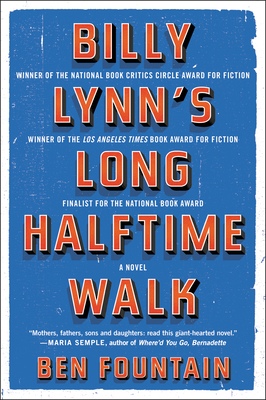
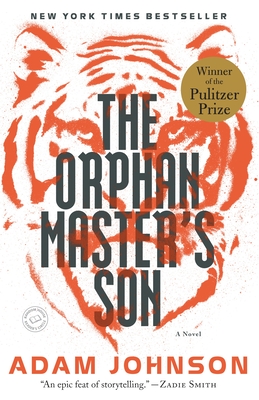
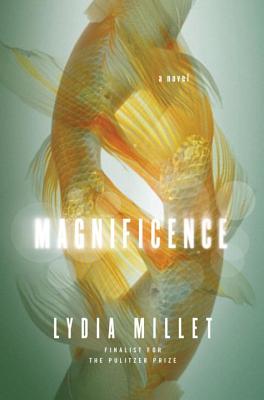
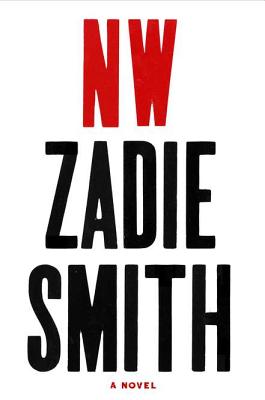
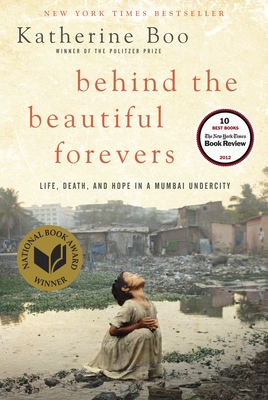
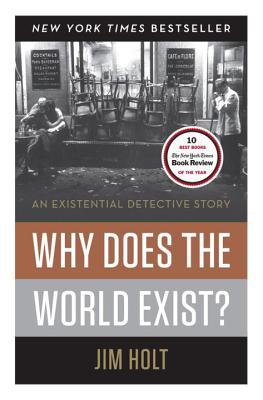
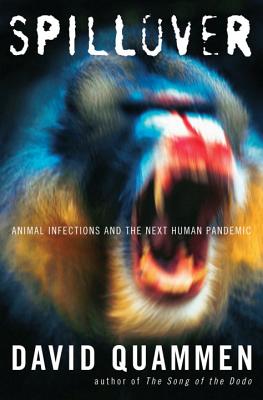
No comments:
Post a Comment